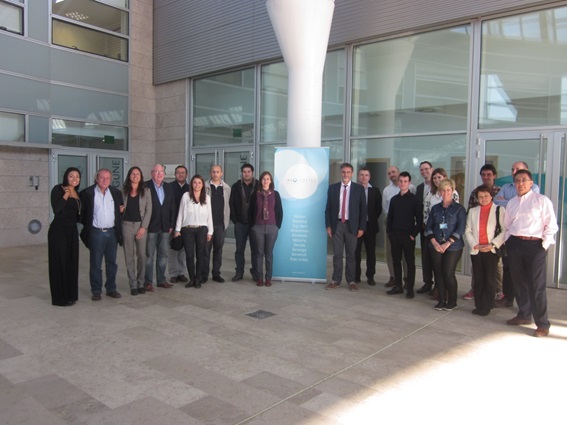
On 17 March the final meeting of the ECLIPSE project was held in CIDETEC. The aim of the project, which began in 2012 and continued for three years, was to develop new sustainable packaging concepts derived from renewable sources, more specifically, from various forms of biomass waste.
One of the most significant achievements of the project was having obtained a biopolymer, polylactic acid (PLA), from 100% algae biomass waste. During this project, the researchers studied various strains of microalgae that are usually grown to obtain biodiesel, which are high in lipid and fermentable carbohydrate content, thus revalorising the different components of the algae.
Additionally, they revalorised other types of biomass waste, such as the stems of the banana plant and the shells of crustaceans, thus obtaining nanomaterials both with reinforcing and antimicrobial properties.
Finally, they successfully obtained various PLA-based bioplastics for the two target applications. Firstly, agricultural bags used in the cultivation of bananas and, secondly, containers for wet wipes. Besides the fact that the materials used to manufacture these products are 100% renewable, the compostability of the final product is, in both cases, an incentive for their commercial use.
12 partners from 8 different countries, including South America, participated in the project and it had a budget of 3.7 million euros.